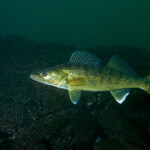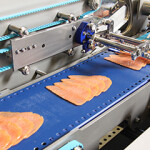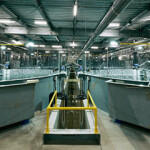New England, Iceland ocean clusters seek better use of "wasted" crustacean shells
Following the lead of Iceland’s crustacean fishery, which cut down on its waste of crustacean shells by converting the shells into useful products, the New England Ocean Cluster is seeking a similar solution for its lobster fishery.
Based in Maine, the New England Ocean Cluster is a partnership that seeks to encourage innovation and creativity in the private sector. It is modeled after the Iceland Ocean Cluster, which has developed several high-value products from materials normally discarded by the seafood industry, including cosmetics, skin care products, pharmaceuticals and biomedicine products.
Shells represent about 30 percent of the live weight of the average crustacean, and when processed, the shells are removed and generally considered waste. However, several countries in Northern Europe, including Iceland, now convert 30 to 60 percent of their crustacean shells into chitin and chitosan, sought-after materials for a range of purposes from water treatment to high-end pharmacological products, according to the New England Ocean Cluster.
A recent event in Boston, “Challenges in Maximizing the Yield of Crustacean Harvest,” explored ways the New England lobster fishery can make better use of crustacean shell waste.
“The NEOC and IOC are continuing to bring people together on this topic to identify opportunities to advance the initiative, and collaborative efforts between Icelandic and Maine businesses are already beginning to take root in shell dehydration,” the NEOC said in a press release. “The ocean clusters hope to lay the groundwork for productive changes in the way shell waste is managed in the United States and North America.”






Share